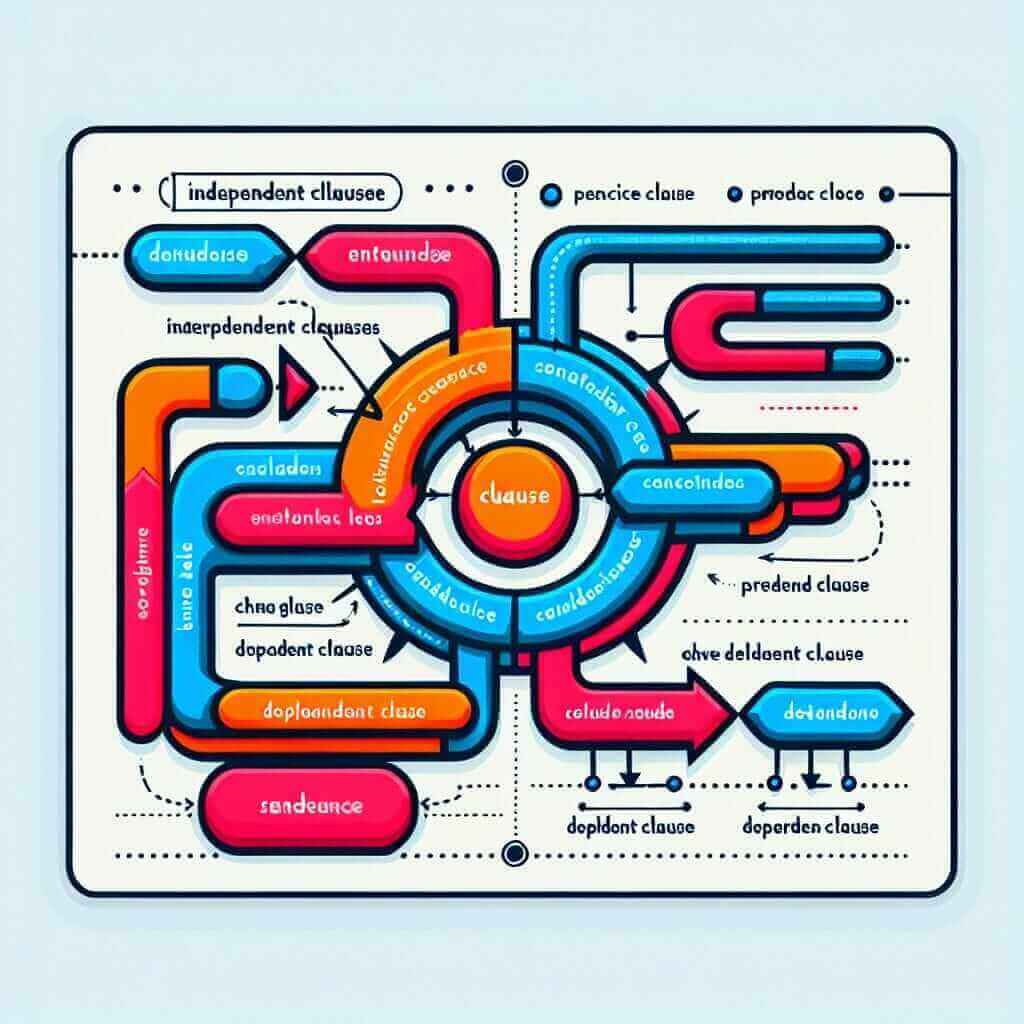For IELTS aspirants, particularly those aiming for a band score of 7 or higher, demonstrating mastery of complex sentences in your writing is crucial. Complex sentences not only showcase your grammatical range, a key factor in your IELTS writing score, but they also allow you to articulate ideas with more sophistication and clarity.
Understanding Complex Sentences
In the simplest terms, a complex sentence is built from one independent clause (a complete thought) and one or more dependent clauses (incomplete thoughts). While this may sound daunting, the power of the complex sentence lies in its ability to forge connections between ideas.
Let’s look at some examples:
Simple sentence: The cost of living is rising.
Complex sentence: Because the cost of living is rising, many people are struggling to afford basic necessities.
Notice how the complex sentence provides a reason (“Because the cost of living is rising”) for the situation in the main clause? This connection strengthens the writing and helps the reader understand the information more fully.

Examples of Complex Sentences and Their Use in IELTS Writing
Here are several ways you can create complex sentences, along with examples of how to effectively use them in your IELTS essays:
1. Using Subordinating Conjunctions:
- Although renewable energy sources are becoming more popular, fossil fuels still dominate global energy production.
- While some people believe that technology isolates individuals, others argue that it fosters global connection.
- Because education is considered a fundamental right, governments should invest heavily in public schools.
2. Using Relative Clauses:
- Many large corporations, which prioritize profit over environmental concerns, have been criticized for their role in climate change.
- The study, which was conducted by researchers at a leading university, provides compelling evidence to support this claim.
- The internet, a tool that has revolutionized communication, has both positive and negative impacts on society.
3. Using Noun Clauses:
- What the government needs to address urgently is the rising unemployment rate.
- It is essential that we find ways to reduce our carbon footprint.
- Experts debate whether artificial intelligence will ultimately benefit or harm humanity.
Applying Complex Sentences in IELTS Writing Tasks
Let’s take a look at how to incorporate these sentence structures into actual IELTS essay prompts:
IELTS Writing Task 2 Question:
“Some people believe that the best way to improve public health is by increasing the number of sports facilities. Others, however, believe that other measures are required. Discuss both views and give your opinion.”
Sample Response (Band 8):
“While expanding access to sports facilities is undoubtedly beneficial for public health, it alone cannot fully address the complex issue of improving overall well-being. Although providing more opportunities for physical activity can encourage healthier lifestyles, other crucial factors must be considered. These include promoting healthy diets through education and affordable access to nutritious foods, as well as addressing socioeconomic factors that contribute to poor health outcomes.”
Analysis:
- The use of “While… undoubtedly beneficial…” introduces a concession, acknowledging one viewpoint before presenting an alternative.
- The relative clause “that contribute to poor health outcomes” adds detail and specificity.
- “Although…can encourage” provides a contrast, acknowledging the benefits of sports facilities but emphasizing the need for broader solutions.
Common Mistakes and How to Avoid Them
While complex sentences enhance your writing, it’s important to use them correctly:
- Run-on sentences: Ensure you use appropriate punctuation (commas, semicolons) to separate clauses.
- Incorrect conjunctions: Make sure the conjunction you use accurately reflects the relationship between the clauses.
- Overuse: Don’t force complex sentences into your writing. Aim for a balance between simple, compound, and complex sentences for natural flow.
Practice Makes Perfect
The key to mastering complex sentences is consistent practice. Here are some helpful tips:
- Rewrite simple sentences: Take simple sentences and combine them using the techniques mentioned above.
- Analyze model essays: Pay attention to how high-scoring IELTS essays use complex sentences effectively.
- Get feedback: Ask your IELTS instructor or a language partner to review your writing and provide feedback on your sentence structure.
By consciously incorporating complex sentences into your IELTS writing, you demonstrate your command of grammar and your ability to present ideas with clarity and sophistication. Remember, practice and focused effort will ultimately lead you to achieve your desired IELTS score.